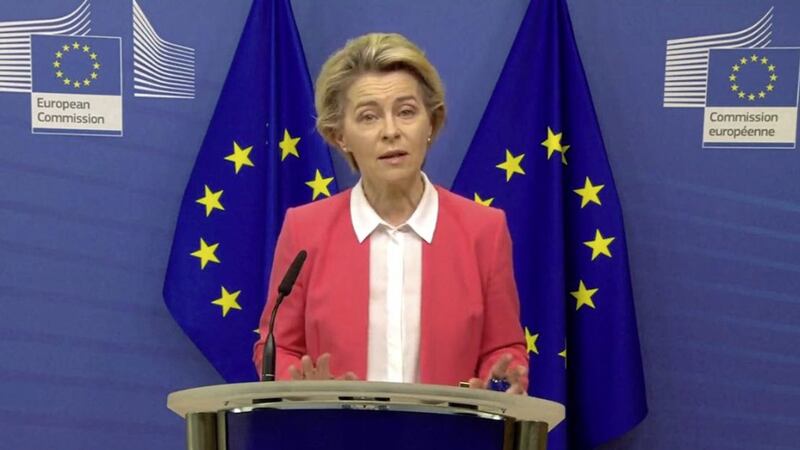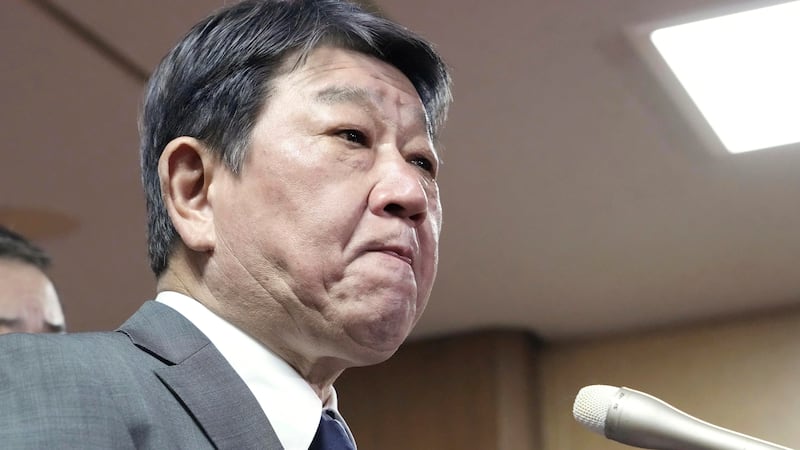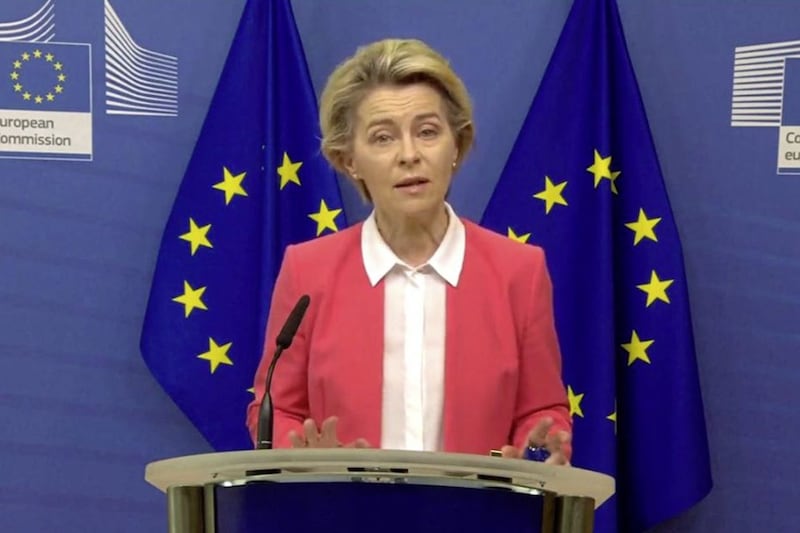The European Union’s top official has said the 27-nation bloc should avoid becoming dependent on untrustworthy countries, as it did with Russia and its fossil fuels, amid the transition towards a greener economy.
Speaking on Tuesday at the World Economic Forum’s annual gathering in Davos, European Commission President Ursula von der Leyen said the “economies of the future” will no longer rely on oil and coal.
She said the green and digital transitions will increase the need for materials like lithium and silicon metal required for batteries, chips, electric vehicles or wind turbines.
The head of the EU’s executive arm said: “We rely on a handful of producers in the world. So, we must avoid falling into the same trap as with oil and gas.”
Ms von der Leyen said the EU has secured materials partnerships with countries like Canada.
She added that the war in Ukraine has strengthened Europe’s determination to quickly get rid of Russian fossil fuels.
EU countries have approved an embargo on coal from Russia but have yet to find a deal on sanctions targeting oil.
Ms von der Leyen also said Russia’s war in Ukraine should end with a “strategic failure” for the invading country, as she pledged that the bloc will continue to invest massively in support of Ukraine.
In addition to the economic sanctions imposed on Russia and the military aid provided to Ukraine, Ms von der Leyen said the EU has proposed over 10 billion euro (£8.4 billion) in macro-financial assistance, the largest package ever offered to a third country.
She told the World Economic Forum’s annual gathering that the EU is “mobilising our full economic power” and “we will, hand in hand, help Ukraine rise from the ashes”.
Ms von der Leyen added that reconstruction efforts also should aim to modernise Ukraine’s administration – a requirement if the country wants to join the 27-nation bloc in the future.
She said the reforms should “firmly establish the rule of law and the independence of (Ukraine’s) judiciary” and help tackle corruption.
Ms von der Leyen also said Russia can be reintegrated into the orbit of European nations if it finds its way back to “democracy, the rule of law, the respect for the international rules-based order”.
Insisting on the historical and cultural links between Europe and Russia, the head of the EU’s executive arm said reconciliation is “certainly a distant dream and hope.
“But this also says that our standing up against this brutal invasion is standing up against the leadership in Russia. It is the Russian people who are the ones who decide about the future of their country. They have it in their hands.”
Tuesday’s agenda in Davos is packed with sessions on one of the meeting’s key themes — climate change.
US climate envoy John Kerry is due to make an appearance.
There also will be addresses by Spanish Prime Minister Pedro Sanchez and Nato Secretary-General Jens Stoltenberg.
Later, billionaire financier George Soros is hosting a dinner for media – a non-official forum event but a fixture outside the Davos meeting.








